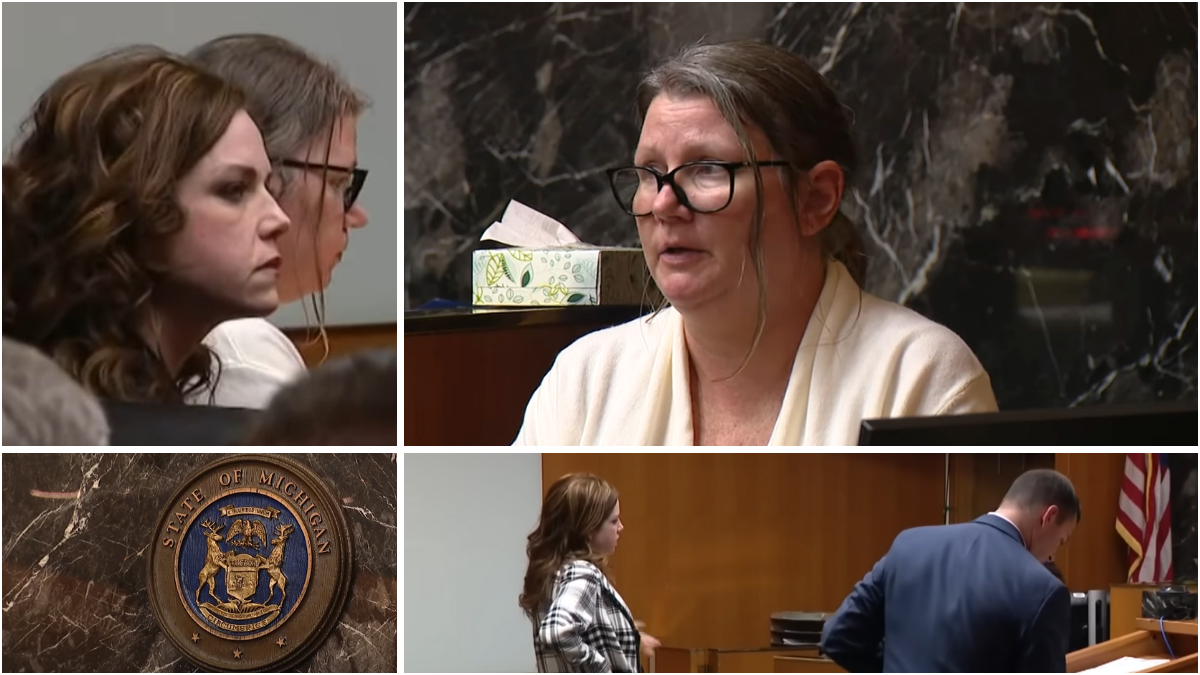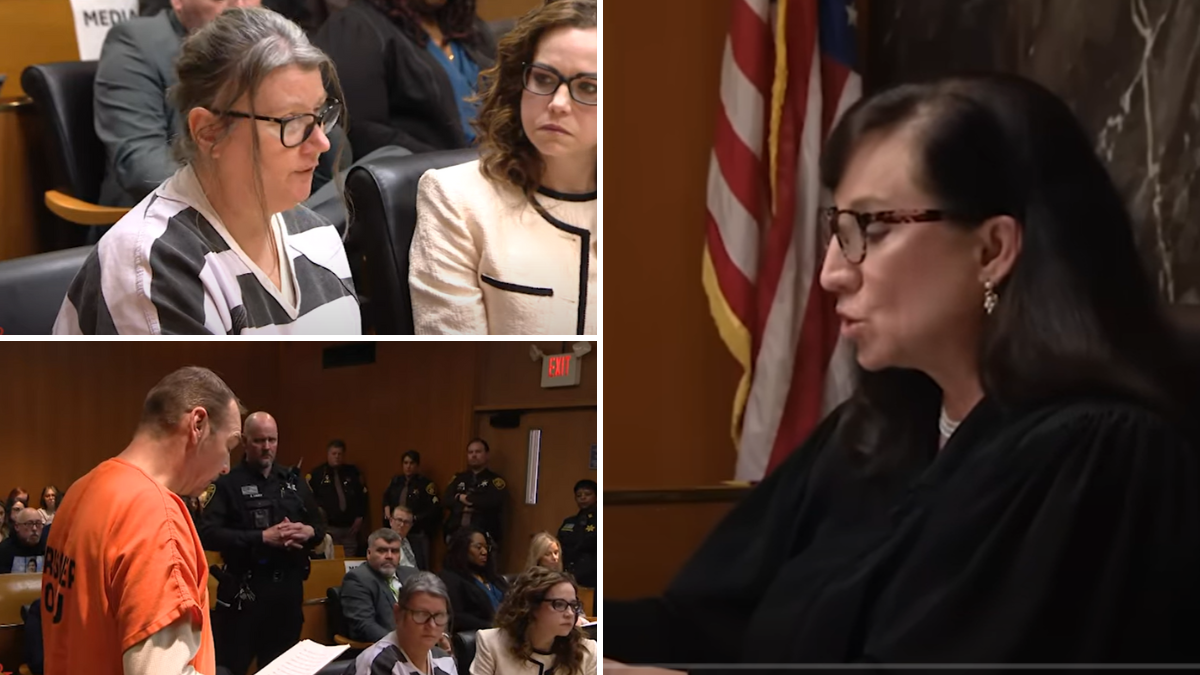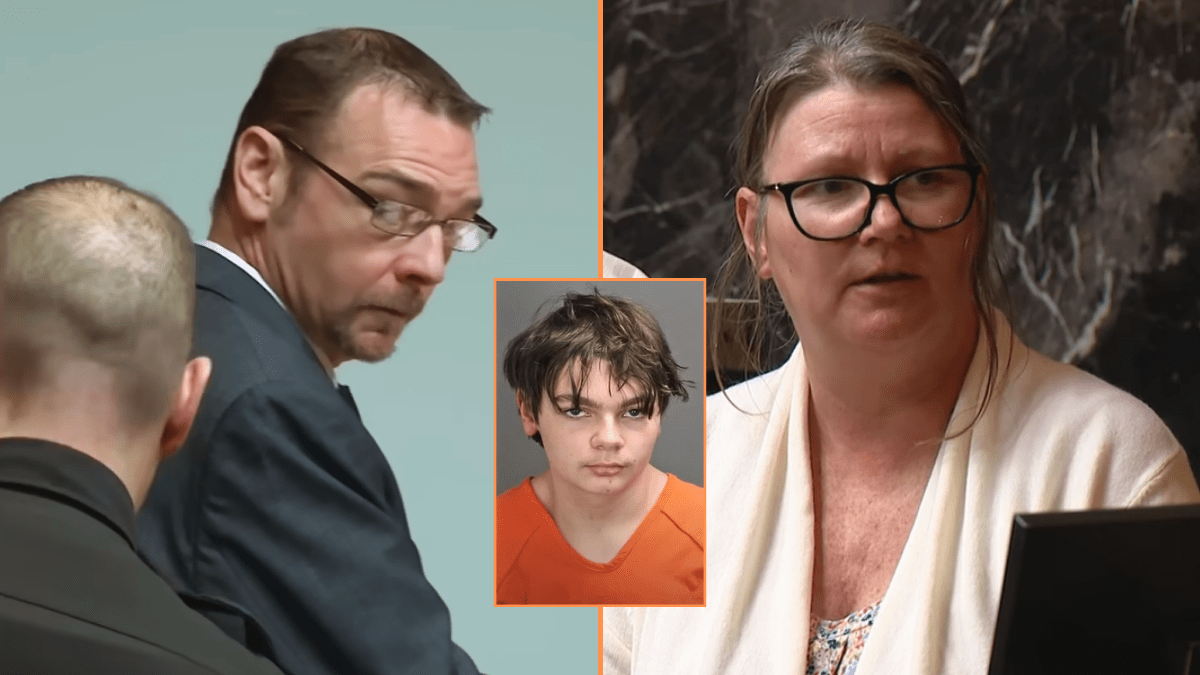There’s no denying that Ethan Crumbley had profound mental health issues, and that these had manifested way before he decided to take four lives and destroy many others. But, the question for the jury in James and Jennifer Crumbley‘s trials was whether the parents were negligent to the point in which they could be considered guilty of four counts of involuntary manslaughter for their son’s harrowing actions.
Jennifer herself admitted that she noticed her son was acting depressed in April 2021. The shooting took place over half a year later, on November 30. Could the tragedy have been prevented had she and her husband gotten psychiatric medical care for their son, who by all accounts showed signs of worrisome hallucinations? Could they have prevented it, had they not bought their son a gun? A weapon he would use to kill, injure, and traumatize people at his school? What if they had acted and taken Ethan home when they were called to the school that day?
Jennifer’s defense of the purchase was that, in her mind, the gun was only supposed to be used at the shooting range. But it wasn’t. Of the two parents, James was the most guilty of failing to store the gun in a secure place, ultimately allowing his son unrestricted access to the weapon. He was also the one who bought it in the first place.
On the live coverage of the Law&Crime Trials YouTube channel, on hour 9 of Jury deliberations for Jennifer’s trial, 15.000 people voted in chat what they believed the results of the trial were going to be: 43% voted guilty, 35% not guilty, and 22% hung jury. These numbers do not point to a landslide win. Neither Jennifer nor James were model parents, but, as it was established in court, being a bad mother or father is technically not a crime.
Did the jury members think Jennifer and James were more than bad parents, that they were guilty of gross negligence that resulted in people’s deaths?
The verdict was the same for both parents

After deliberating for 10 hours, the jury reached a unanimous decision: Yes, Jennifer Crumbley is guilty of all four counts of involuntary manslaughter. Court TV guest Marie Pereira argued that the tipping point arose because Jennifer did not take accountability; she failed to see obvious warning signs and offer a heartfelt apology to the victims’ families for her failure, which might’ve swayed the jury towards a conviction.
The verdict for James took longer to be decided upon, a little over 24 hours. He listened to the ‘guilty’ verdict without much apparent emotion.
Jennifer and James’ sentencing hearing was scheduled for April 9. Each count of involuntary manslaughter carried a possible sentence of 15 years behind bars. Although it was likely, as the killer had already been condemned to life in prison, that his parents would serve their sentence concurrently, not consecutively.
Same verdict, same sentencing

At the sentencing hearing, both James and Jennifer read statements to the court. This time, they both expressed remorse and apologized to the victims’ families. James’ voice and tone seemed to hold more sincere emotion and turmoil than his spouse’s.
“I’ll continue to feel this pain for the rest of my life as well,” James said.
That said, James’ jailhouse calls tell a different story, one where he sees himself as a “martyr” and where the school is the one entity at fault.
Regardless, both Crumbleys got the same legal punishment. Both asked the court for a fair sentence and they seem to have gotten it: Ten to fifteen years in prison, with credit for time already served.
Judge Cheryl Matthews did emphasize once more before the sentencing that these convictions were not about punishing bad parents, but to condemn the adults who had a duty and many chances but still failed to halt “an oncoming runaway train” and save lives unjustly taken too soon.

